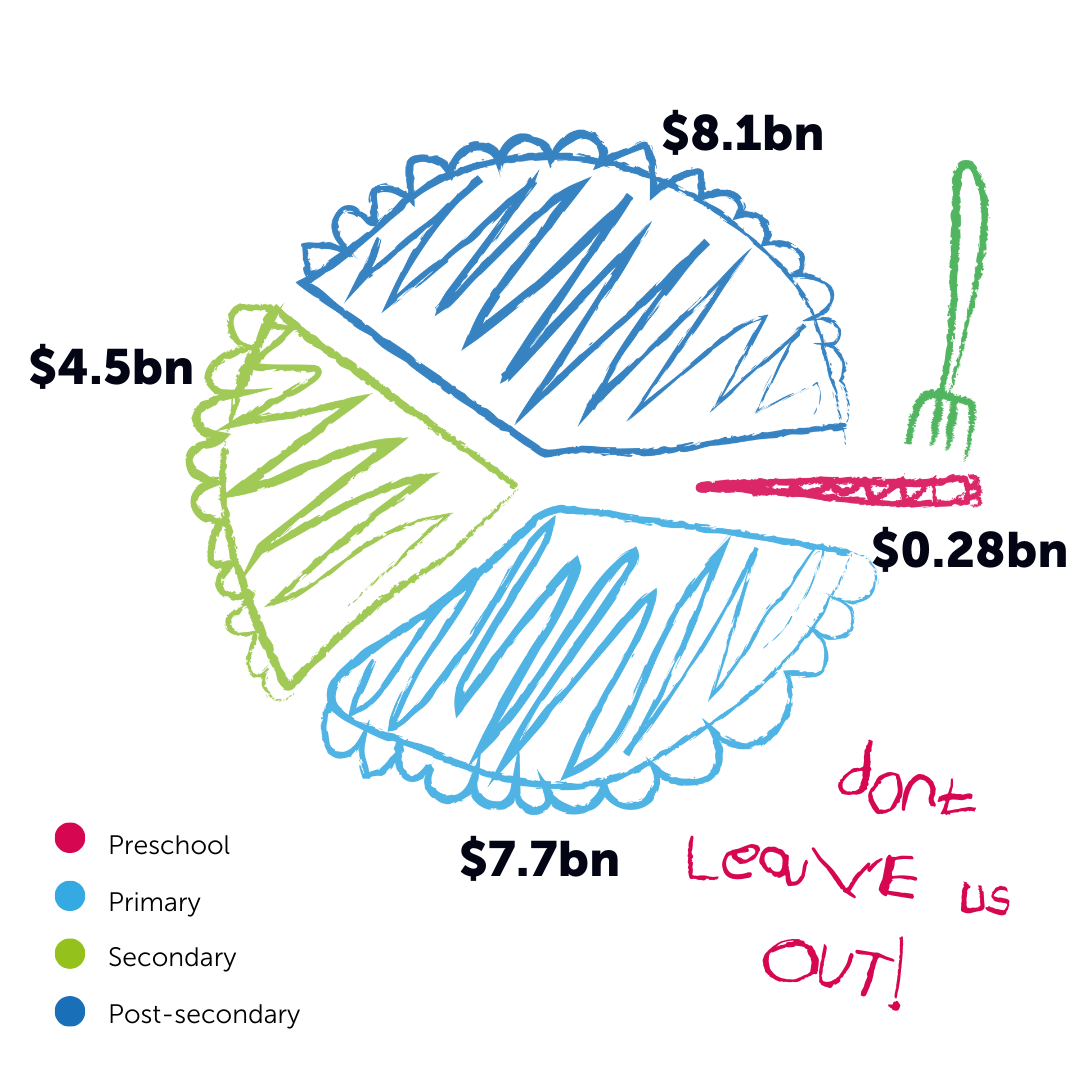
The Act For Early Years Data Hub is a tool that equips you to take action. It contains all the data you need to show that the world’s youngest children have been deprioritised and to make the case for urgent change.
Download. Share. Act.
More countries to follow
Global Data
The amount of aid to pre-primary education increased from 2021 to 2022, but overall aid to pre-primary education is still below the 10% target that Theirworld has advocated for since 2017.
This is the seventh annual edition of a series prepared by the Research for Equitable Access and Learning (REAL) Centre Cambridge for Theirworld. We review the latest data available on pre-primary education spending.

Early years spending on snakes and ladders
Investment in preschool aid bounced back from a sharp decline during the Covid-19 pandemic to grow by a third in 2022, reaching its highest level ever. If spending continues to increase by a third every year up to 2030, the world will hit the 10% target and unlock over $2bn for young learners.

Early years are being left out
Despite encouraging progress in aid to preschool education in 2022, it remains just under 1.5% of total aid to education, far off the internationally agreed target of 10%. This imbalance must be reconsidered urgently. The consistent neglect of aid to preschool has caused a crisis of inequality affecting the world’s youngest children, which will require years of improved investment to address. As long as preschool aid lags behind other education aid, this gap will be impossible to close.

Missing the early years target
Despite the international target of allocating 10% of education aid spending to preschool, most donor countries fall short, meaning children are missing out on the best start in life.

Early years aid is over-reliant on top five donor nations
In 2022, just a few donors accounted for the majority of preschool aid. This creates over-reliance on a small number of donors and puts children at risk of instability if donor nations change priorities.
